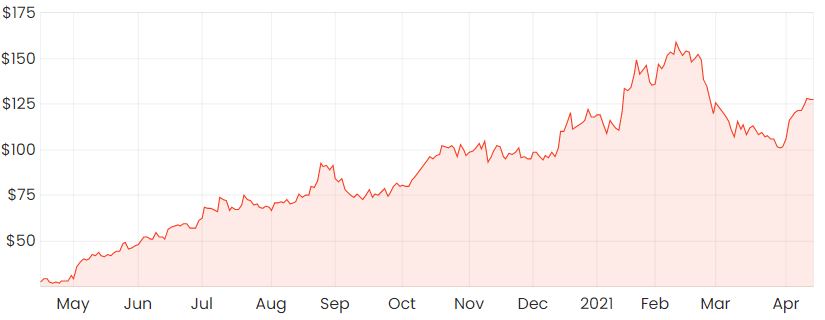Commonwealth Bank of Australia (ASX: CBA) CEO Matt Comyn has recently appeared before a parliamentary committee and argued that it’s time for regulators to step in and align buy-now-pay-later companies with traditional credit products that are subject to strict credit reporting regimes.
Comyn has said buy-now-pay-later (BNPL) products should also be held to a similar standard and merchants should be allowed to pass on service fees to their customers.
Here’s how the latter might affect some ASX BNPL shares.
Afterpay share price

Merchant fees
For any given purchase that uses a BNPL platform such as Afterpay Ltd (ASX: APT) or Zip Co Ltd (ASX: Z1P), the merchant typically gets charged around 4-5% of the transaction amount. This is significantly higher than other forms of payment such as debit and credit cards, which are usually between 1-2%.
The current regulation around this means merchants aren’t allowed to surcharge this merchant fee, i.e., Increase the transaction amount by 4-5% to cover this cost.
Instead, one of the only other ways merchants can recoup this cost is to increase the price of all goods and services store-wide, which will therefore indirectly cover the cost of the merchant fee.
The problem with this is that customers who aren’t paying through BNPL are essentially subsidising those who are and will pay more than they usually would for their purchase.
Those against allowing BNPL surcharges would commonly argue that businesses generate a higher volume of sales through BNPL’s lead generation capabilities.
This is probably true, but card schemes such as Visa Inc (NYSE: V) and Mastercard Inc (NYSE: MA) also attract customers as a secure payment network, but these costs are allowed to be passed on to customers in the form of a surcharge. In this regard, I don’t see why merchants shouldn’t be allowed to surcharge as well rather than coughing up the service fee themselves.
My guess is that BNPL providers are against surcharging because it’s a real possibility that fewer customers would choose to purchase through these forms of payment if the cost was passed onto them.
According to a 2019 consumer survey cited by the RBA, around 50% of respondents said they’d use a different payment method if a surcharge was imposed, 10% would cancel the purchase, and 40% would be happy to pay the surcharge.
Summary
While BNPL is often considered extremely low-cost due to charging no interest, the reality is that someone or some business has to end up paying for it.
The current regulation in favour of BNPL companies passes the cost onto merchants, which has been a boon for many BNPL valuations up until now, but I’m not so sure if it can last forever.
For more reading, I’d suggest getting a free Rask account and accessing our full stock reports. Click this link to join for free and access our analyst reports.









